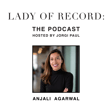
Sara Myerson on Mixed-Income Mixed-Use, Intention & Placemaking
Sara is the Managing Director of Investments at MSquared, a New York-based, women-owned real estate impact platform focused on creating mixed-income, mixed-use projects that promote affordability, sustainability, and diversity. With a Master in Urban Planning from Harvard University, she brings over 15 years of development, design, finance and public-private partnership experience, all with a focus on emerging and transforming urban markets. Although only two of the top 25 development firms in the country are run by a woman, none by a person of color, and less than 5% of real estate investment firms are led by women and people of color, Sara is breaking this mold, bravely and creatively setting a new bar for pairing economic opportunity with social impact. Sara breaks down a range of projects, from transforming an entire city block in Upper Manhattan’s Inwood neighborhood to designing new types of ownership to close wealth gaps in Los Angeles’ Crenshaw corridor, and shares how she aligns properties with purpose.
Learn more about MSquared at buildmsquared.com.
Thank you for listening and if you want to know more about Lady of Record visit Instagram @ladyofrecord and ladyofrecord.com.
All information provided is for informational purposes only. It should not be relied upon as investment advice or recommendations and should not be considered specific real estate, legal, investment, financial or tax advice. Investing entails risk, including the possible loss of principal, and past performance is not predictive of future results.
